Act now to bag NatWest-owned Ulster Bank's 5.2% easy access savings account
Ulster Bank is offering savers the chance to earn 5.2% on their cash savings, but you need to act fast as easy access rates are falling. We have all the details

Vaishali Varu

Get the latest financial news, insights and expert analysis from our award-winning MoneyWeek team, to help you understand what really matters when it comes to your finances.
You are now subscribed
Your newsletter sign-up was successful
Want to add more newsletters?

Twice daily
MoneyWeek
Get the latest financial news, insights and expert analysis from our award-winning MoneyWeek team, to help you understand what really matters when it comes to your finances.

Four times a week
Look After My Bills
Sign up to our free money-saving newsletter, filled with the latest news and expert advice to help you find the best tips and deals for managing your bills. Start saving today!
NatWest-owned Ulster Bank’s top 5.2% easy access saver account has remained on the market even as other rates have dropped.
Ulster Bank boosted the rate on its easy-access account back in October when competition in the savings market hit its peak. Lenders have been dropping their rates since November, but Ulster Bank’s deal is still available.
At the time, Ulster Bank upped its rate from 5% to 5.2% on its easy access account, and the saver went head to head with the likes of NS&I’s 6.2% one-year fixed bond, which was pulled after being on the market for only around five weeks.
MoneyWeek
Subscribe to MoneyWeek today and get your first six magazine issues absolutely FREE

Sign up to Money Morning
Don't miss the latest investment and personal finances news, market analysis, plus money-saving tips with our free twice-daily newsletter
Don't miss the latest investment and personal finances news, market analysis, plus money-saving tips with our free twice-daily newsletter
Despite a short life span on the best savings accounts plus falling savings rates, more than 1,000 accounts including this 5.2% saver by Ulster Bank now beat inflation.
Ulster Bank’s savings account is also just below the base rate of 5.25%, which the Bank of England froze for the third time in December.
This is among the top easy access accounts and is an attractive product for putting money aside, especially if you want somewhere for your emergency or short-term savings where you can earn a decent interest rate.
There are some restrictions though. We explain how Ulster Bank’s Loyalty Saver rate works.
Who can get Ulster Bank’s 5.2% Loyalty Saver rate?
Ulster Bank is based in Northern Ireland but this account is also open to residents across the UK over age 16.
You have to apply digitally and have a mobile number and email address to open an account but if you live in Northern Ireland you can get help in a branch. Otherwise, you will need to apply online through the Ulster Bank website.
It is open to new and existing Ulster Bank customers. If you already bank with Ulster Bank, you can use its Round Ups savings feature from the current account to put the extra money aside.
You need at least £5,000 to get the 5.2% rate and anything below that will earn 2.25%. So, this is only a best-buy if you have at least £5,000 to save.
How does Ulster Bank’s Loyalty Saver work?
The Loyalty Saver account is opened and run completely online, so you need to be tech-savvy.
You will need to register for Ulster Bank’s internet banking services to access and manage your account.
It can be funded from any current or savings account in your name.
There are no limits on withdrawals and if you live in Northern Ireland you can also withdraw money in branch in addition to online and mobile.
Interest is paid annually, so you would earn £260 on a £5,000 deposit after 12 months. If you have less to save, take a look at Satander-owned Cahoot - which also pays 5.2% and you only need £1 to get started. But, you can only save up to £3,000.
How does Ulster Bank’s Loyalty Saver compare with the rest of the market?
As with most easy-access deals, the 5.2% rate is variable so could change at any time. This means Ulster Bank could decide to reduce the rate once it has enough demand or it could even go up again if interest rates rise further. Savers will get 60 days’ notice of any changes.
You only get the 5.2% rate once you have £5,000 in the account so it may not be best for those with small savings pots. But if you have built up a big emergency stash or have large sums to set aside, this product could be attractive and has the added benefit of unlimited withdrawals if you require regular access.
But, Ulster Bank’s easy-access account is not the best rate on the market.
Currently, Metro Bank is at the top of our best buy table, with its 5.22% Instant Access account which can be opened with £500.
Yet, a lot of top easy-access accounts come with hidden restrictions, so the rate offered might put the account at the top of our best buy table, but it may not be a feasible option for many.
For example, Santander’s Edge Saver is offering a whopping 7%, but it is only available to Santander edge customers, and the 7% rate includes a bonus rate of 2.5% which could be dropped at anytime.
As mentioned, Cahoot’s Sunny Day saver also offers 5.2% like Ulster Bank, but you can only save up to £3,000 a year.
Better savings rates are on offer if you are willing to lock your money away for a short period. You can earn up to 5.5% if you fix your savings for a year with Al Rayan Bank.
Are easy access savings rates falling?
Lenders have been dropping the rates on the best easy-access savings accounts, though they have been a lot more steady than fixed savings, which has seen daily drops since November.
So far, there has been no rate falls on easy-access accounts in the new year. But in December, MoneyWeek saw four easy access savings deals pulled and three accounts fall in rate.
Plus, experts believe we have hit the peak of interest rate hikes as inflation has lowered (but not reached the 2% target), and that the base rate could fall which would push savings rates down further.
Sarah Coles at Hargreaves Lansdown warns: “At the moment the market is pricing in for the Bank of England to cut rates as early as May, and while that consensus holds, we can expect savings rates to keep falling.”
Get the latest financial news, insights and expert analysis from our award-winning MoneyWeek team, to help you understand what really matters when it comes to your finances.

Marc Shoffman is an award-winning freelance journalist specialising in business, personal finance and property. His work has appeared in print and online publications ranging from FT Business to The Times, Mail on Sunday and the i newspaper. He also co-presents the In For A Penny financial planning podcast.
-
 Should you buy an active ETF?
Should you buy an active ETF?ETFs are often mischaracterised as passive products, but they can be a convenient way to add active management to your portfolio
-
 Power up your pension before 5 April – easy ways to save before the tax year end
Power up your pension before 5 April – easy ways to save before the tax year endWith the end of the tax year looming, pension savers currently have a window to review and maximise what’s going into their retirement funds – we look at how
-
 Nationwide promises to protect all its branches from closures until at least 2030
Nationwide promises to protect all its branches from closures until at least 2030The building society has extended its pledge to keep all high street Nationwide and Virgin Money branches open, now until at least 2030.
-
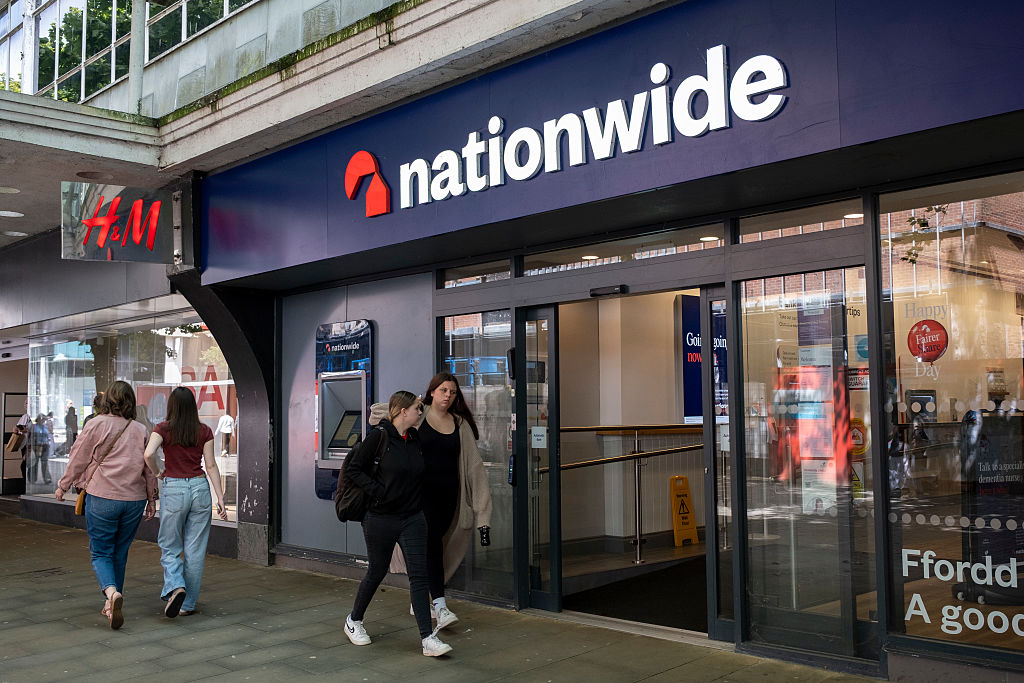 Nationwide Building Society launches £175 switching deal – who is eligible?
Nationwide Building Society launches £175 switching deal – who is eligible?Nationwide Building Society has launched a new current account switching deal. We look at whether you are eligible, and how to get the free cash.
-
 Green mortgages: how do they work and how much can you save?
Green mortgages: how do they work and how much can you save?Most high-street lenders now offer some kind of green mortgage deal. We look at who’s eligible, how to apply and the mortgage rates and cashback on offer
-
 Thousands of Brits switch to Nationwide, Monzo and NatWest – which banks are least popular?
Thousands of Brits switch to Nationwide, Monzo and NatWest – which banks are least popular?We look at the most and least popular banks and building societies as current account bank switches reach a record high. Is it worth moving your money?
-
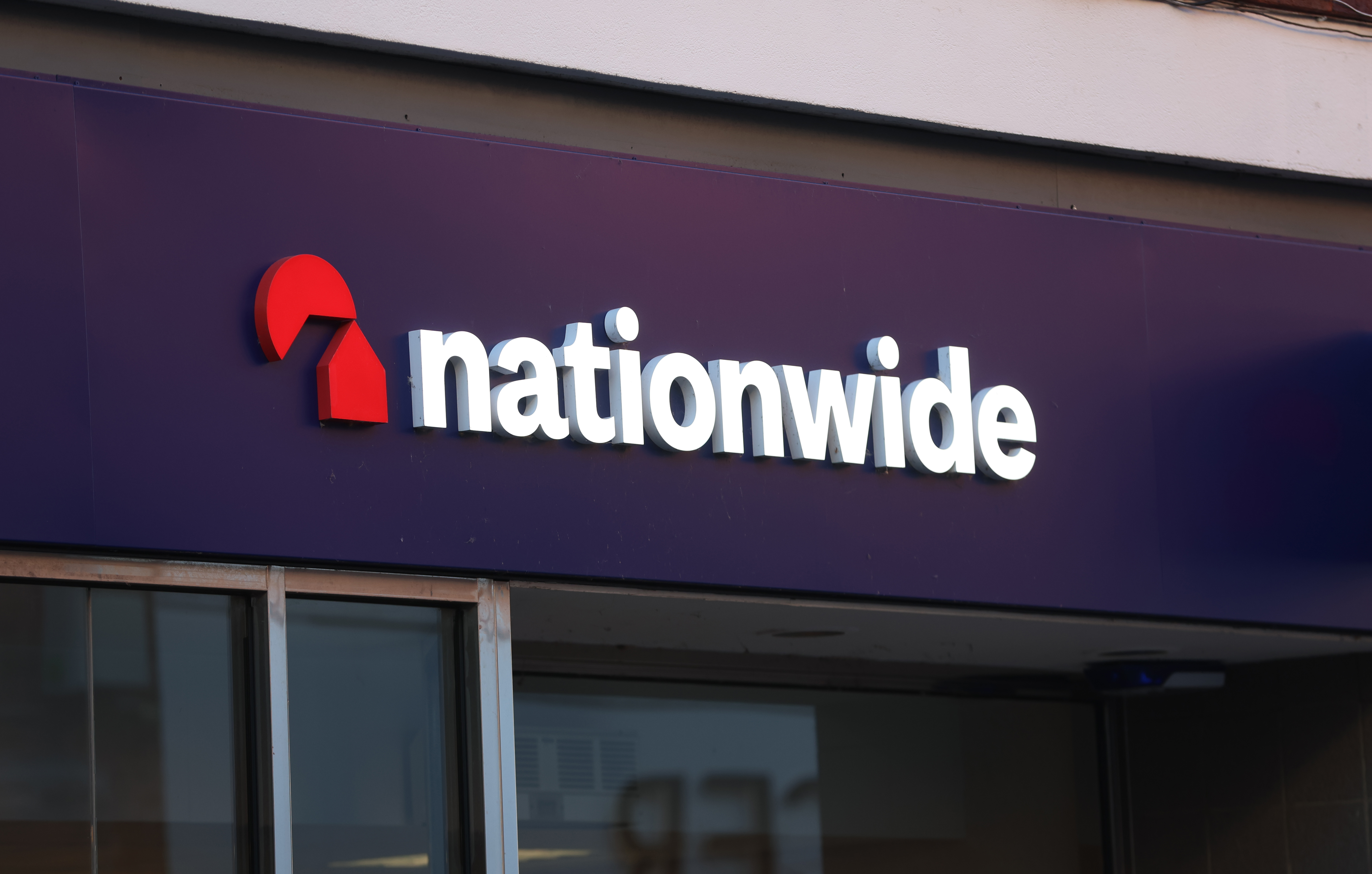 Did you get the £100 Nationwide bonus? Here’s how to check
Did you get the £100 Nationwide bonus? Here’s how to checkNationwide finished paying its £100 Fairer Share bonus last week. We explain what to do if you didn’t get it but think you’re eligible
-
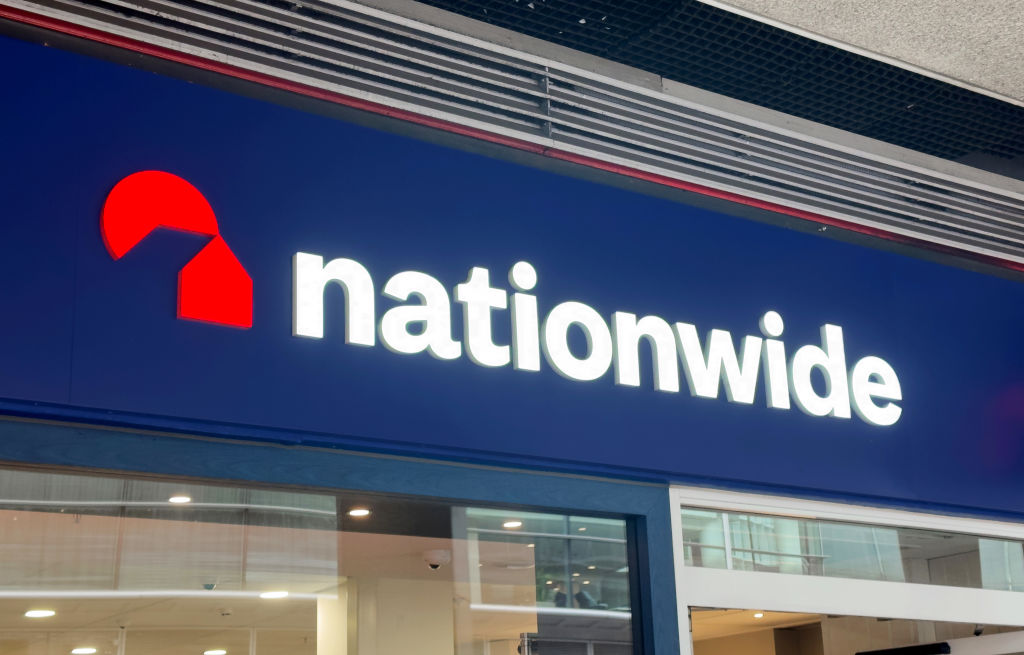 Nationwide to pull its £175 switching bonus - act now to get offer
Nationwide to pull its £175 switching bonus - act now to get offerThe building society is withdrawing its bank switching offer at the end of the month, after gaining thousands of customers last year. We explain how to qualify for the current account switching bonus
-
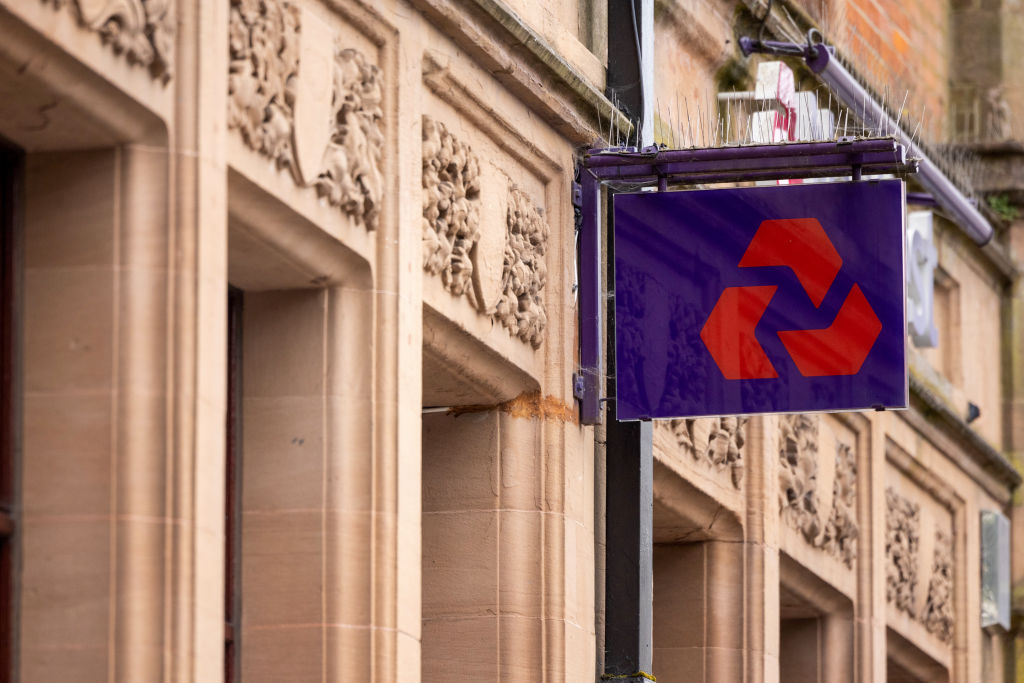 NatWest sell-off moves closer as the government offloads more shares
NatWest sell-off moves closer as the government offloads more sharesThe UK Treasury's stake in NatWest has fallen to below 11% - here is what it means for the share price
-
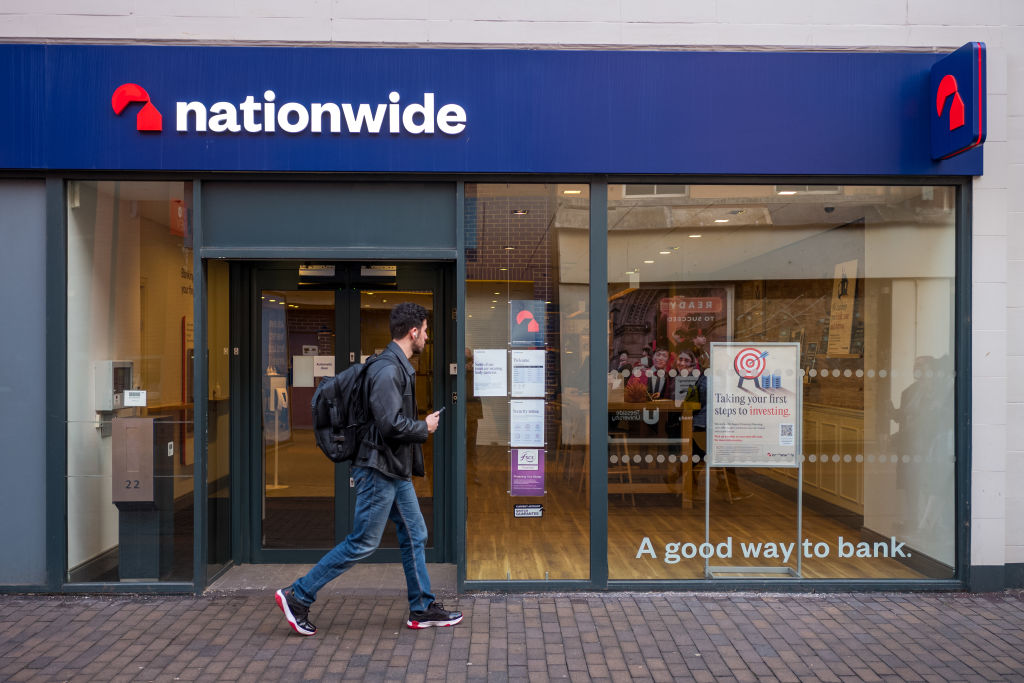 My 8% Nationwide regular saver has matured - what are my options?
My 8% Nationwide regular saver has matured - what are my options?Nationwide’s popular 8% account has matured for savers. Should you stick with the building society or move to a competitor?